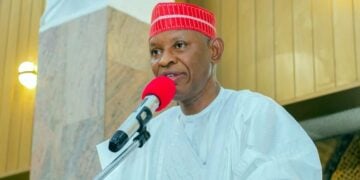The Vice President, Yemi Osinbajo, has said that the new population policy will solve existing demographic crisis in the country.
Osinbajo stated this at the high-level policy dialogue on National Population Policy (NPP), themed: ‘The Role of Ministries, Department and Agencies (MDAs) and Private Sector, organised by the National Institute for Policy and Strategic Studies (NIPSS) with support from the development Research and Projects Centre (dRPC), under the Partnership for Advocacy in child and family health at Scale, a Bill and Melinda Gates Foundation-funded project, in Abuja.
The policy, which seeks to address the country’s rapid population growth was lunched by President Muhammadu Buhari in February 2022.
The policy has an overall goal of improving the life and standard of living for all Nigerians through population control. It also emphasizes the urgency to address the country’s sustained high fertility rate, through expanding access to modern family planning, counselling and commodities as well as promote births spacing.
Osinbajo, who was represented by the special adviser to the president on social investment, Maryam Uwais, said for a country to experience economic growth, human capital must be heavily invested in it. “It has been argued that population is not the problem but proper management,” he said.
He identified the advantage of a high population as increased taxes and productivity, among others while stating however that when a high population is not properly managed, it leads to increased crime rates, unemployment, environmental pollution, and more.
The chiarman, National Population Commission (NPC), Hon. Nasir Kwarra, has expressed optimism that full implementation of the revised Population Policy will accelerate significant fertility decline that will transform the country’s age structure for demographic transition to occur.
He said, “As we are in the process of disseminating the Revised NPP nation-wide, I wish to seize this opportunity to make a clarion call for both technical and financial support for the timely and efficient facilitation of the full implementation of the policy.
“If this is achieved, we are optimistic that several opportunities will emerge that will accelerate significant fertility decline that will transform our age structure for demographic transition to occur. This will facilitate the management of our population, accelerate economic growth and improve the quality of life.”
The DG of NIPSS, Mr Ayo Omotayo, in his welcome address, said the theme was apt because of the need to interrogate the tenuous causal relationship between population size, human capital development and the quest for sustainable livelihood in Nigeria.
He said the country continues to demonstrate commitment to addressing population growth and human capital development, saying the new policy on population was a clear demonstration of that commitment.





